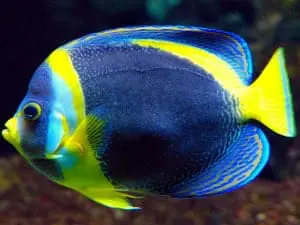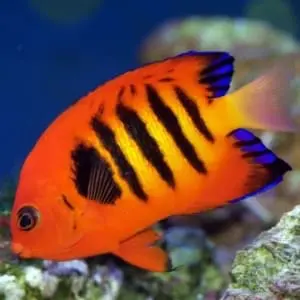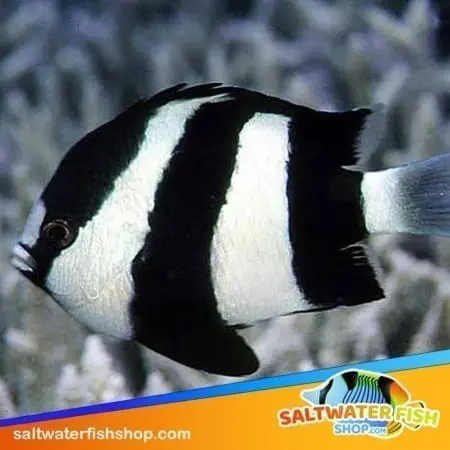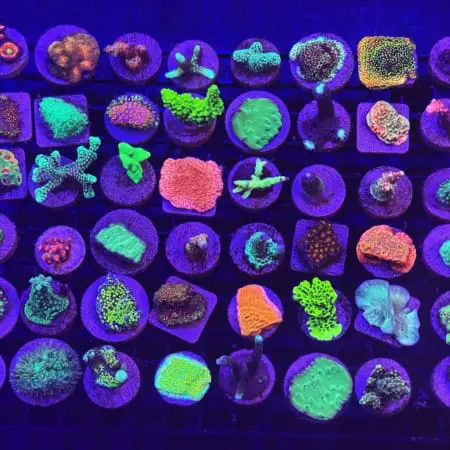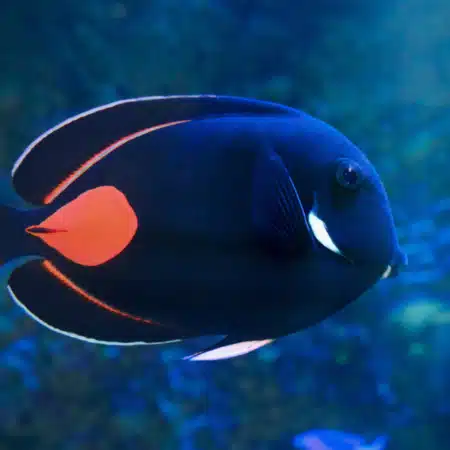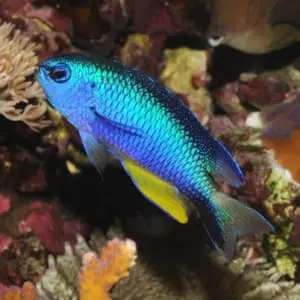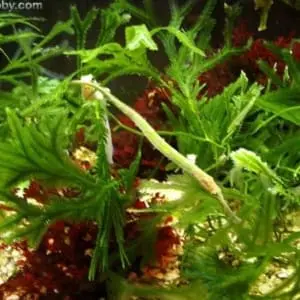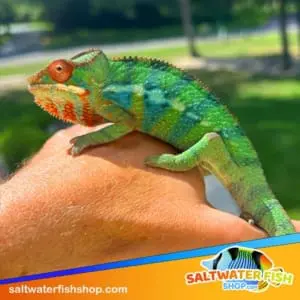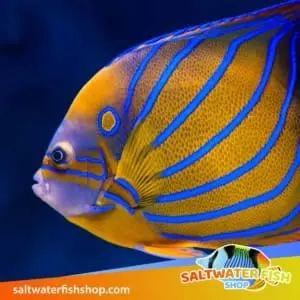Angelfish feeding and diet
When young, a diet of plankton is recommended for angelfish. When older, in the wild, Angelfish feed on tunicates, hydriods, sponges and beyozoans (these include seasquirts, jellyfish, animals found in seaweed). It is hard to care for certain species because they will only eat specific foods. An example are Holocanthus angelfish, they only eat fish food made of sponge.
Angelfish food includes frozen and dry
For these reasons, we recommend a variety of frozen angelfish food for sale. Frozen Angelfish food includes formula 1, formula 1, algae formula, angelfish formula with sponges and more. Other alternatives include meatier foods like prawn, shrimp, krill, mysis and brine shrimp. An aquarium with algae in it is good for angelfish care because they enjoy eating it. Larger angelfish eat small crustaceans. They can be kept in the aquarium as extra food for your angelfish. We offer a wide variety of high quality flake food, algae based that also works great for angelfish. Also, marine angelfish pellets sold here work great for angelfish for sale.
Angelfish Care
Before purchasing your very own angelfish for sale, be sure to read Salt Water Fish Shop’s angelfish care sheets. Learn about proper care and proper angelfish care for your new angelfish. Also, you’ll find detailed information on angelfish care provided by our biologist including the following:
- Angelfish Care
- Saltwater Angelfish Care Sheet
- Angelfish Origin
- Marine Angelfish tank conditions
- Angelfish size
- saltwater fish for sale
- Flame Angelfish for sale
- Passer Angelfish
- Majestic Angelfish for sale
- Blueface Angelfish
- Lemon Peel Angelfish
- Coral Beauty Angelfish for sale
- Angelfish water filtration
- Saltwater Angelfish breeding
- marine angelfish for sale
- marine fish for sale
- Angelfish feeding
- Safe Angelfish tankmates
- angelfish tank
- Marine angelfish lifespan
- angelfish for sale
- angelfish water conditons
- how to care for angelfish
- angelfish diet
Saltwater Angelfish for sale
Angelfish care sheet – Origin
Most saltwater angelfish species are found in the Western Pacific. Interestingly, nine species are found in the Atlantic ocean. Secondly, four subspecies are found in the Indian Ocean/Eastern Pacific area. Saltwater angelfish are often found on shallow reefs in tropical waters. Amazing saltwater angel fish for sale are available here at SWFS with overnight shipping.
Angelfish Tank Conditions
The ideal tank conditions for saltwater angelfish depends on the species. In general, an aquarium for these fish must recreate the features of their natural habitat so that the fish will grow up healthy. Because some angelfish are territorial, they are required to be introduced into the tank last. Even introducing them to the saltwater aquarium at the same time as others works.
Angelfish Care – Salinity:
Saltwater fish need saline water. Saltwater tanks with reefs have a recommended salinity level of 1.024 – 1.025 . This could be achieved by mixing salt into the aquarium water.
Saltwater Angelfish for sale – Water hardness:
Angelfish typically come from slightly acidic, soft waters, but angelfish adapt well to waters of various hardness and pH. Both magnesium and calcium found in ocean water can be replicated in tanks by adding crushed coral and shells in the aquarium. Tank decorations are sometimes made with calcium in them to be used for this purpose as well.
Using substrate that is crushed coral helps a ton with keeping water conditions and parameters in tact. Alternatively, supplements can be added as well as calcium reactors, phosphate reactors and more.
Angelfish Care Sheet – Oxygen:
Angelfish absorb oxygen from the water through their gills. Dissolved oxygen is necessary for all species of angelfish. They move to the parts of water containing the highest amount of dissolved oxygen. Moving water creates greater gas / air exchange and therefore helps with oxygenating the water. Using a good protein skimmer that utilizes venturi technology helps keep the oxygen level within acceptable levels for most species of marine fish for sale
Remember, oxygen in the tank water is necessary for fish to survive. Bubblers and water filters help oxygen be distributed in the water. Aquariums with larger surface areas allow oxygen to also enter the water from the surface. Proper filtration, refugiums and mechnical skimmers will help keep your tank full of oxygen necessary to support aquatic life.
Saltwater Angelfish Size
A bigger aquarium is needed for larger saltwater angelfish. A Smaller aquariums can be used for pygmy or medium sized angelfish for sale. Anywhere from w0-55 gallon tanks are needed for small angelfish. For medium sized angelfish, a tank of 55-100 gallons is recommended. A large angelfish needs a tank about 100-300 gallons. Saltwater angelfish can be anywhere from 1-3″ (pgymy angelfish) , 3-5″ (medium sized angelfish) and 6-24″ for larger species of saltwater angelfish for sale. Providing your angelfish ample swimming space and clean water is key to successfully keeping marine angelfish for sale.
Angelfish Filters and Water Filtration
In nature, sea water is abundant and always replenished, but the same effect does not occur in a closed container (fish tank). Fish waste can build up in the tank if the filter is not changed often enough. Undissolved organics are responsible for the increase in harmful water parameters like ammonia, nitrates and nitrites. Biological as well as mechanical filtration is necessary. Using things like protein skimmers, and UV sterilizers will also increase the time between necessary water changes.
Protein Skimmers for angelfish
Using a protein skimmer is recommended but not necessary for fish only tanks. By using a good quality saltwater fish tank protein skimmer, you will reduce the amount of water changes necessary per year drastically. Additionally, expect cleaner looking water, more of a clear and less green tint. Dissolved organics are removed from the angelfish tank water by the way of either water changes, or protein skimming. Additional nutrient export via Macro Algae via a refugium works wonders. Refugiums are some of our favorite ways of filtration here at SWFS.
Water changes and saltwater angelfish tanks
Water changes are done anywhere from every 4 weeks, to 4 months. Angelfish require a filter. The filter also multitasks to move distilled oxygen around the water, making a bubbler not necessary.
Angelfish Breeding
If you want to breed your angelfish, you have to prepare and create space for the many fish to come. Breeding angelfish creates many fish. They will need to be transferred into a larger aquarium. Saltwater fish are born females and if dominant, become males. If male angelfish lose their dominance, they become females. You do not need to distinguish the difference between the fish genders. Fish choose their genders depending on what is needed for the situation.
Some fish species find a mate and stay with them, but in some species a male mates with several females. Different species should be kept away from angelfish while they are breeding, because they tend to become territorial.
Marine angelfish eggs float in water full with plankton until they hatch. Eggs are easily consumed this way so fish that eat plankton should not be present in the aquarium at this time. It is basically not possible to breed most species of marine angelfish in captivity.
Suitable Tank Mates For Saltwater Angelfish
Angelfish are a territorial species that can be protective of their areas once they are established. Larger angelfish are much more territorial than smaller angelfish or pygmy angelfish. For the most part, you are never able to keep 2 of the same species of angelfish together within the same saltwater aquarium.
If you want to keep different types of fish in the same tank, start with the other fish and add the angelfish last. This will make sure the angelfish does not claim all of the territory as their own. Introducing them last normally makes the most sense. Also, introducing them at the same time as other new tank mates also seems to help.
Angelfish tankmates
For suitable tank mates, consider Tangs of similar size. Tangs for sale that work as tank mates for Angelfish include the Sohal, Blue Tang, Yellow Tang, Powder blue and brown tangs, Achilles tangs for sale and more. Other species of fish that can work in a community tank with larger angelfish include Wrasses and even the Niger Triggerfish. Larger Angelfish also do well in semi aggressive to aggressive tanks. Therefore consider larger pufferfish for sale, lionfish for sale and triggerfish for sale.
Other smaller suitable tank mates for both large and pygmy species of angelfish including Ocellaris clownfish for sale, as well as species of butterfly fish for sale.
Tolerance of other saltwater angelfish as tank mates
Tolerance of other fish depends on the size of the angelfish. Smaller angelfish are usually not aggressive and can live with other fish. They make great tank mates with Blennies, Gobies, Anthias, Butterflyfish and similar species.
Larger angelfish are known to be more aggressive when it comes to keeping them with other fish. If they are kept with other fish, make sure the other species they are being kept with are on the aggressive side as well so the angelfish don’t harm the other fish. Groupers, Damsels, Eels, Triggerfish and Tangs make good additions to angelfish tanks.
When angelfish are younger, it is easier to keep them with other species. This is because at a younger age, they are not territorial yet. When they grow up and start fighting their tank mates, consider moving them to a different tank.
Angelfish Lifespan
A typical saltwater angelfish lives up to 15 years with proper angelfish care. As they grow, their appearance (colors and patterns) can change depending on the species of angelfish. Many fish owners enjoy watching their angelfish change from baby to juvenile to adult form. Larger angelfish tend to live longer than pygmy species of angels.

